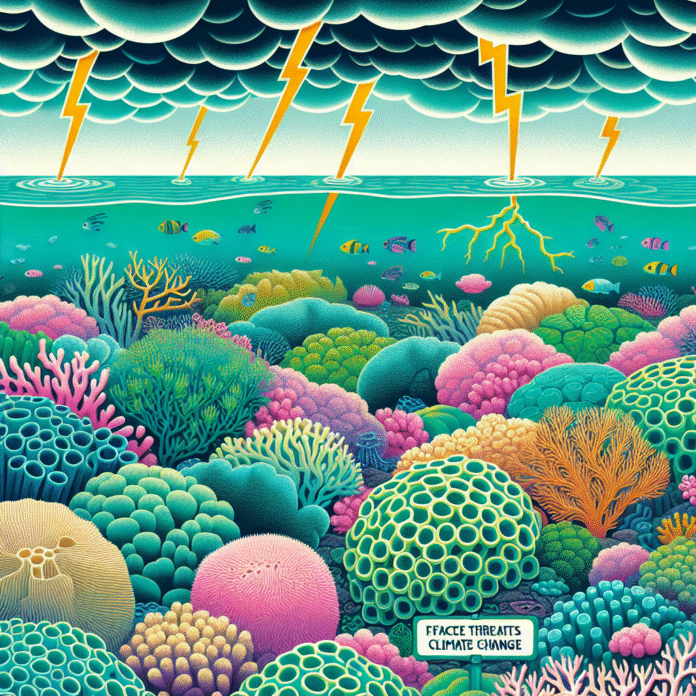Belize Reefs Face Challenges from Climate Change
Belize’s Reefs Suffer as Climate Change Intensifies
The vibrant coral reefs of Belize, renowned for their unparalleled beauty and biodiversity, are facing unprecedented threats due to the escalating impacts of climate change. These underwater ecosystems, which are vital to marine life and local economies, are experiencing significant stress from rising ocean temperatures, increased ocean acidification, and more frequent extreme weather events.
Impact of Rising Ocean Temperatures
Coral reefs are highly sensitive to temperature changes. As global temperatures rise, the waters surrounding Belize are warming, leading to a phenomenon known as coral bleaching. During bleaching events, corals expel the algae (zooxanthellae) that live in their tissues and provide them with nutrients and color. Without these algae, corals turn white and become more susceptible to disease and mortality. Reports indicate that Belize has experienced several mass bleaching events in recent years, with the most severe occurrences linked to El Niño conditions.
Ocean Acidification: A Threat to Coral Growth
In addition to rising temperatures, the oceans are absorbing more carbon dioxide, leading to ocean acidification. This process decreases the availability of calcium carbonate, which corals need to build their skeletons. As a result, the growth and structural integrity of coral reefs are compromised, making them more vulnerable to erosion and damage from storms and human activities.
Increased Storm Intensity
Climate change is also linked to the increasing intensity of tropical storms and hurricanes. Belize’s reefs bear the brunt of these powerful storms, which can cause physical destruction to the coral structures. Recovery from such events is slow, and repeated damage can lead to long-term degradation of these ecosystems. The 2020 Atlantic hurricane season, for instance, saw multiple storms impacting the region, raising concerns about the resilience of Belize’s reefs.
Local Communities and Economies at Risk
The health of Belize’s coral reefs is crucial for local communities that rely on fishing and tourism. The reefs support a diverse array of marine life, which is essential for sustainable fishing practices. Additionally, the stunning reefs attract tourists from around the world, providing a significant source of income for the country. As reef health declines, these industries face uncertainty, threatening livelihoods and economic stability.
Conservation Efforts and Future Strategies
In response to these challenges, conservation organizations and the Belizean government are implementing various strategies to protect and restore coral reefs. Initiatives include establishing marine protected areas, promoting sustainable fishing practices, and engaging local communities in conservation efforts. Additionally, researchers are exploring coral restoration techniques, such as coral gardening and selective breeding of heat-resistant coral species, to enhance the resilience of these ecosystems.
Global Cooperation is Essential
While local efforts are crucial, addressing the impacts of climate change on Belize’s reefs requires global cooperation. Reducing greenhouse gas emissions and committing to international climate agreements are vital steps to mitigate the effects of climate change. The preservation of Belize’s reefs is not only a local issue but a global one, as these ecosystems play a critical role in ocean health and biodiversity.
As Belize grapples with the realities of climate change, the future of its renowned coral reefs hangs in the balance. Urgent action is needed to safeguard these invaluable ecosystems for generations to come.
